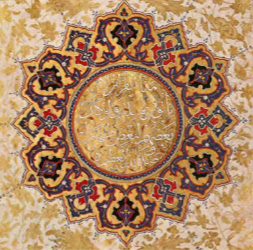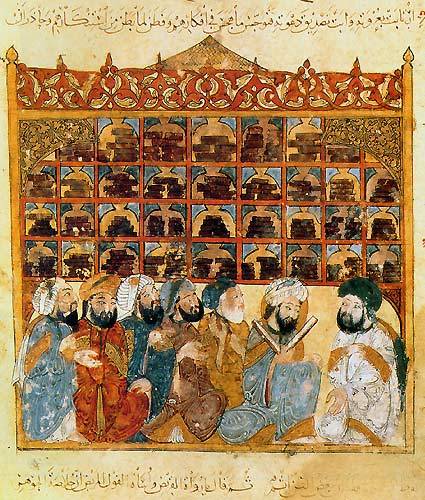International Qur’an Conference: “Recent Trends in Qur’anic Studies”
by Mun’im Sirry
 IQSA and State Islamic University (UIN) Sunan Kalijaga in Yogyakarta, Indonesia, are co-hosting an international conference on “Recent Trends in Qur’anic Studies,” to be held in Yogyakarta on 4-7 August 2015.
IQSA and State Islamic University (UIN) Sunan Kalijaga in Yogyakarta, Indonesia, are co-hosting an international conference on “Recent Trends in Qur’anic Studies,” to be held in Yogyakarta on 4-7 August 2015.
This international Qur’an conference will be a forum where the Islamic tradition and rigorous academic study of the Qur’an will meet, and various approaches to the Qur’an will be critically discussed. In the spirit of learning from, and enriching, one another, we are working on a conference that will introduce our unique model of collaboration between IQSA and UIN Sunan Kalijaga to enhance the field of Qur’anic studies.
 Over the last few decades, Qur’anic studies emerged as an exciting and vibrant field of research among scholars both in the West and in the Muslim-majority countries. This is evident not only in the flurry of books and articles that deal with the Qur’an and in the convening of various workshops and seminars on the subject, but also in the controversies that this field engenders. Diverse methodologies are currently applied to Qur’anic studies, and various issues are raised. Some of these methodologies and issues are new discoveries, while others revive older researches. As a result, many assumptions that for years have been taken for granted are now under rigorous scrutiny and often disputed to such an extent that, as Fred Donner has rightly noted, the field of Qur’anic studies seems today “to be in a state of disarray,” in the sense that there is little consensus among scholars. Questions such as the milieu within which the Qur’an emerged, the Qur’an’s relation to the Biblical tradition, its chronology, textual integration, and literary features are hotly debated today.
Over the last few decades, Qur’anic studies emerged as an exciting and vibrant field of research among scholars both in the West and in the Muslim-majority countries. This is evident not only in the flurry of books and articles that deal with the Qur’an and in the convening of various workshops and seminars on the subject, but also in the controversies that this field engenders. Diverse methodologies are currently applied to Qur’anic studies, and various issues are raised. Some of these methodologies and issues are new discoveries, while others revive older researches. As a result, many assumptions that for years have been taken for granted are now under rigorous scrutiny and often disputed to such an extent that, as Fred Donner has rightly noted, the field of Qur’anic studies seems today “to be in a state of disarray,” in the sense that there is little consensus among scholars. Questions such as the milieu within which the Qur’an emerged, the Qur’an’s relation to the Biblical tradition, its chronology, textual integration, and literary features are hotly debated today.
This international conference aims to explore major methodological and thematic issues in recent scholarly studies of the Qur’an in different parts of the world. We also wish to engage in scholarly conversations about the possibility of collaborative works to enhance the field of Qur’anic studies by bringing together scholars who may have little other chance to directly interact. There clearly needs to be closer collaboration among scholars of different perspectives and backgrounds. Rather than deepening conflicting approaches to the Qur’an, these scholars will explore the extent to which they may learn from one another in terms of methodological/hermeneutical approaches as they will also address current issues being debated in the field.
Among scholars in the field who will participate in the conference, to mention a few names (in alphabetical order), are: Fred Donner, Ali Mabrouk, Daniel Madigan, Jane McAuliffe, Gabriel Reynolds, Andrew Rippin, Abdullah Saeed, Nayla Tabbara, along with Indonesian scholars such as Amin Abdullah, Noorhaidi Hasan, Moch. Nur Ichwan, Syafaatun el-Mirzanah, Yusuf Rahman, Quraish Shihab, Sahiron Syamsuddin.
If you are interested in presenting your research on any of the following topics, please send your abstract (250 words) to Mun’im Sirry (msirry@nd.edu).
Possible topics:
- Critical Approaches to the Qur’an
- Qur’anic Milieu
- Intertextuality: The Qur’an and the Biblical tradition
- The Qur’an and Other Religions
- Re-assessing the Exegetical Tradition of the Qur’an
- Modern Trends in the Tafsir Tradition
- The Indigenization of the Qur’an: Is there an Indonesian Tafsir
Please note that abstracts, papers and presentation must be in English.
Important Dates:
- Deadline for submission of abstract: November 1, 2014
- Notification of acceptance: November 15, 2014
- Confirmation of attendance: December 1, 2014
- Submission of full paper: June 1, 2015
- Conference dates: August 4-7, 2015
© International Qur’anic Studies Association, 2014. All rights reserved.

